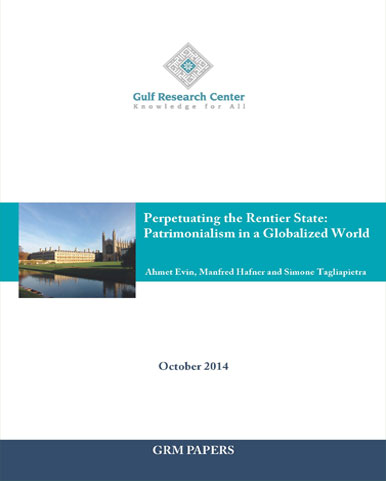Perpetuating the Rentier State: Patrimonialism in a Globalized World
Publisher: Gulf Research Centre Cambridge
Published year: 2014
GRM year: 5
This paper examines whether the rentier state exists today according to the criteria formulated by Hazem Beblawi and Giacomo Luciani some 25 years ago and whether it is possible to sharpen the definition of the rentier state with the benefit of hindsight. Since the rentier state theory was first articulated, a great deal has changed in respect to the economies of the energy-producing Gulf countries. They have not only grown much richer but also adopted sophisticated means for governing their finances and have become significant players in global financial markets. Moreover, they have begun planning for the time when they would run out of hydrocarbon reserves by directing a significant portion of their rents into Sovereign Wealth Funds. The Gulf is further no longer at the periphery but constitutes one of the significant centers at the global crossroads.
